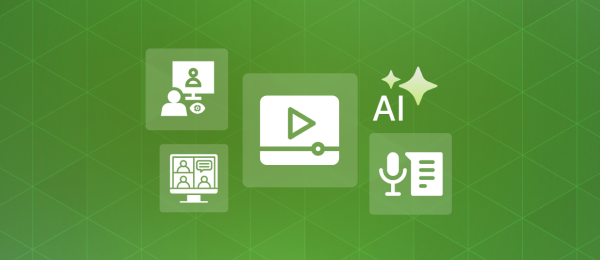Effective Strategies for Online Campus Recruitment in 2025
The recruitment process in 2025 is evolving rapidly as the advancements in technology and expectations from candidates keep changing. Automation and AI are breaking the barriers of how to conduct campus recruitment online by streamlining tasks like resume screening and candidate experience.
Several different types of HR software save you time and help you make data-driven and precise decisions, and with the rise of hybrid models, more organizations are embracing HR automation tools to connect with global talent.
Companies are investing heavily in enhancing candidate experiences to attract top talent. Transparent communication and personalized interactions are crucial in creating a positive impression on potential hires.

Employer branding is another key focus, with organizations using social media and online platforms to highlight their values and culture. This approach not only attracts talent but also builds lasting relationships with prospective employees.
Overall, the online campus recruitment strategy 2025 is about adapting to change, embracing technology, and prioritizing inclusivity and engagement.
Here are a few strategies to boost the recruitment process for students on campus this year.
1. Engage through Virtual Campus Employment Platforms
Virtual campus employment platforms have transformed the recruitment landscape by breaking geographical barriers and enabling companies to connect with students from across the globe. These platforms offer an efficient and cost-effective way to engage with potential employees, reducing logistical expenses while streamlining the hiring process. By leveraging advanced tools such as AI-driven assessments, video interviews, and data analytics, organizations can make informed decisions about candidates’ suitability.

Moreover, virtual career fairs, webinars, and gamification provide an interactive and engaging environment, allowing companies to strengthen their employer brand and attract top talent. The ability to reach diverse groups and foster inclusivity has become a hallmark of these platforms, further enhancing their value.
A hybrid approach combining virtual and in-person elements is also gaining traction, creating a flexible and balanced recruitment strategy. Success on these platforms hinges on personalized communication, continuous engagement, and feedback mechanisms, all of which enhance the overall candidate experience while improving recruitment outcomes.
2. Develop an Effective Online Campus Placement Strategy
An effective online campus placement strategy involves creating a seamless and immersive digital experience that benefits both students and recruiters. At its core, the plan should focus on leveraging technology to streamline recruitment processes, ensuring efficiency and adaptability.
This can be achieved by using advanced tools such as AI-driven assessments, virtual interviews, and analytics to evaluate candidates, allowing recruiters to make data-driven decisions.
The strategy should include the following:
- Personalization by tailoring communications and experiences to meet diverse needs, fostering inclusivity, and enhancing the candidate experience.
- Time-saving methods like automated scheduling and online documentation.
- Feedback mechanisms ensure continuous improvement.
3. Leverage HR Software for Campus Recruitment
Leveraging campus recruitment software has the potential to completely transform the hiring process, offering unparalleled efficiency and precision.
These advanced tools streamline operations by automating crucial tasks like resume screening, interview scheduling, and candidate engagement, saving time and resources for both recruiters and educational institutions. Platforms like Jobma go a step further by offering tailored coding assessments and video interviewing solutions, enabling recruiters to assess candidates’ technical expertise effectively.
Analytics and reporting functionalities further provide actionable insights into the recruitment funnel, helping recruiters refine their strategies and improve decision-making.
4. Use AI-Driven Resume Screening Tools
Resume screening software for campus hiring has become a game-changer in virtual campus hiring, addressing the inefficiencies and biases inherent in manual screening processes. These tools utilize advanced algorithms to swiftly analyze large volumes of resumes and focus on data points such as skills, qualifications, and experience.
This not only reduces the time and effort involved but also minimizes human errors and ensures a fair and objective selection process. Beyond basic keyword matching, many AI-powered systems now incorporate natural language processing (NLP) and machine learning to assess candidates’ potential by identifying relevant experiences, analyzing career patterns, and even predicting job success.

These tools allow recruiters to customize filters and scoring systems, enabling them to prioritize diverse hiring goals such as inclusivity or specific skill sets. The added capability of real-time analytics provides deeper insights into candidate pools, helping organizations identify trends and refine their talent acquisition strategies.
When integrated with Applicant Tracking Systems (ATS), AI-driven screening tools can create a seamless end-to-end recruitment experience, from sourcing to final selection.
5. Master Video Interviews
Video interviews, particularly asynchronous interviews for campus recruitment, are a valuable tool for both students and educational institutions. Through recorded interviews, colleges can offer students a way to review their performance, identify strengths, and work on areas that need improvement. It creates an opportunity for self-evaluation and builds confidence for future interviews.
For students, access to recorded interviews means they can observe their body language, communication style, and responses in a real-world setting. It helps them become more aware of their presentation and allows for constructive feedback from mentors or placement cells. This feedback loop sharpens their skills and enhances their chances of success in campus placements.
Colleges also benefit by using these recordings to assess the overall quality of their training programs and make data-driven improvements. It helps them track student progress and showcase successful interviews as training material for future batches. Ultimately, video recording interviews strengthens the placement ecosystem and prepares students more effectively for corporate expectations.

6. Customized Messaging
Customized messaging tailors communication to suit the needs and profiles of students, recruiters, and institutions. Instead of using generic emails or announcements, customized messages deliver relevant information—like interview schedules, job opportunities, or feedback—based on a student’s course, skill set, or career interests.
For students, this means receiving clear, personalized updates that help them stay informed and prepared. They’re more likely to engage with opportunities that match their goals and qualifications, making the entire recruitment process more efficient and less stressful.
Colleges benefit by streamlining their communication and building stronger relationships with both students and recruiters. It also adds a professional touch to the placement process, reflecting the institution’s commitment to student success and operational excellence.
7. Skill-based hiring
By 2025, there will be more emphasis on the hiring process based on skill rather than pinpointing traditional qualifications for the evaluation of candidates’ real abilities. This method not only decreases bias but also increases the long-term viability of candidates by aligning their skills with the job requirements. Employers are increasingly prioritizing soft and hard skills above traditional qualifications to lessen hiring bias and improve the likelihood of long-term success. According to the Select Software Reviews, 94% of employers believe hiring based on skill is more reliable in predicting the performance of a job than resumes.
8. Utilize Data to Improve Continuously
Consistent use of data in recruitment strategies unlocks new levels of precision and efficiency, enabling organizations to refine and optimize their hiring processes. Advanced analytics provide critical insights by tracking application trends, candidate preferences, and hiring outcomes, empowering recruiters to identify patterns and opportunities for improvement.
Leveraging tools such as applicant tracking systems (ATS) and recruitment dashboards, organizations can monitor key metrics like time-to-hire, candidate drop-off rates, and diversity ratios, ensuring every stage of the process aligns with organizational goals.
Incorporating predictive analytics can elevate decision-making further by forecasting candidate success and retention based on historical data. This allows recruiters to prioritize candidates who are the best cultural and skill fit for the organization.
9. Prioritize Candidate Experience
Prioritizing candidate experience is a crucial milestone of effective recruitment, as it not only enhances your brand image but also helps attract and retain top talent. A well-crafted candidate journey begins with transparent and timely communication, ensuring applicants are informed at every stage of the process. Providing clear job descriptions, setting realistic expectations, and sharing detailed timelines can reduce uncertainty and foster trust. Implementing easy-to-use, intuitive application platforms with mobile-friendly interfaces can significantly improve accessibility and convenience for candidates.
Feedback plays a critical role in creating a positive experience. Offering personalized and constructive feedback, regardless of the outcome, demonstrates respect for candidates’ efforts and leaves a lasting impression.
10. Collaboration with Educational Institutions
Collaboration with educational institutions is a cornerstone of building a robust talent pipeline and fostering mutually beneficial relationships between academia and industry. By developing strong partnerships with colleges and universities, organizations can establish a steady stream of skilled and job-ready candidates.
Hosting workshops on emerging industry trends and in-demand skills enhances students’ knowledge and positions the organization as a thought leader in its domain. Participating in career fairs provides an invaluable opportunity to network with potential talent, share insights about company culture, and spark interest in your brand.

Internship programs serve as a crucial touchpoint, offering students hands-on experience and exposure to real-world challenges while allowing recruiters to evaluate candidates’ capabilities in a practical setting.
Also, offering mentorship programs and guest lectures can create deeper engagement and help bridge the gap between theoretical learning and professional applications. Institutions can also collaborate with organizations to develop tailored certification programs or curriculum enhancements, ensuring students acquire the skills most relevant to the job market.
Ultimately, these efforts create a win-win scenario by contributing to students’ professional growth while fulfilling the organization’s recruitment and branding objectives.
Conclusion
The digital transformation of campus recruitment through virtual platforms, AI tools, and strategic collaborations has redefined how educational institutions connect. By prioritizing skills over degrees, leveraging data, and ensuring a personalized, engaging candidate experience, companies can attract top talent more effectively.
Simultaneously, students gain access to broader opportunities, better preparation, and valuable industry exposure. A hybrid model that blends technology with human interaction ensures flexibility and inclusivity. As recruitment continues to evolve, success will depend on adaptability, innovation, and meaningful partnerships between academia and industry to build a future-ready workforce.

FAQs
What is online campus recruitment?
Online campus recruitment is a virtual hiring process where companies connect with students through digital platforms to conduct assessments, interviews, and onboarding. It enables broader reach, faster processes, and cost-effective talent acquisition.
How can companies build a strong employer brand for campus hiring?
Companies can build a strong employer brand by engaging with students on social media, showcasing their culture and values, hosting virtual events, and offering personalized communication. Providing a seamless and positive candidate experience also plays a key role.
What tools are essential for a successful online campus hiring strategy?
Key tools include video interview platforms, AI-powered resume screeners, applicant tracking systems (ATS), online skill assessment tools, and data analytics dashboards to track and optimize recruitment outcomes.
What are the benefits of online skill assessments in campus hiring?
Online skill assessments offer objective, scalable, and data-driven evaluation of candidates. They help identify job-ready talent, reduce hiring bias, and ensure alignment between candidate skills and job roles, leading to better hiring decisions.



